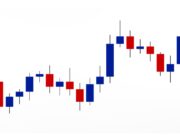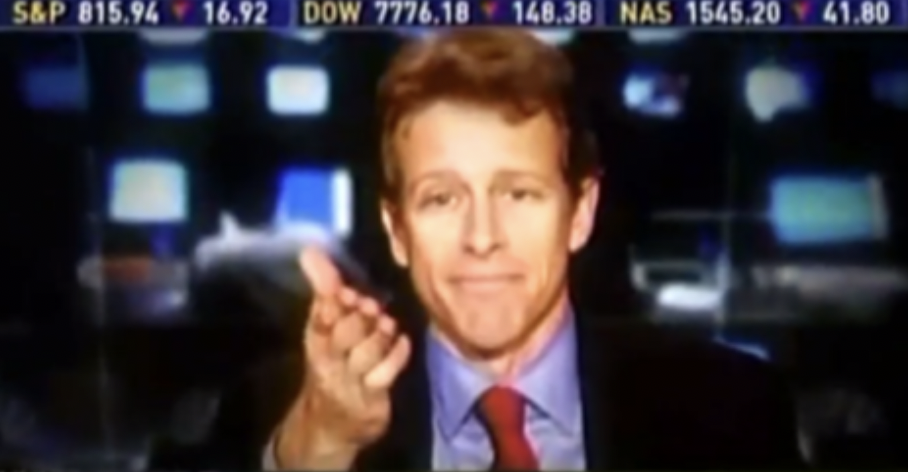Stocks finished sharply lower last week as market optimism faded that the Federal Reserve would be able to tame inflation without causing a significant economic slowdown. Friday’s sell-off came following hawkish comments from Fed Chair Jerome Powell at the Jackson Hole Economic Symposium. Powell indicated that the central bank would continue aggressively raising interest rates until inflation was under control. For the week, the Dow dropped 4.2%, the S&P 500 slid 4%, and the Nasdaq Composite fell 4.4% to its lowest level in a month.
Market watchers will be focused on the labor market this week in anticipation of the Job Openings and Labor Turnover Survey (JOLTS) report for July and the Bureau of Labor Statistics nonfarm payrolls report for August. As earnings season winds down, we can still expect reports from Best Buy, Chewy, HP, and Lululemon, among others.
Our team has its eyes on three tickers this week, including one that’s been defying the odds and may be gaining steam for another leg up. Plus, a unique approach for anyone looking to employ a short position but doesn’t want the exposure to the risk that comes with it.
Specialty retailer of premium home products, William-Sonoma Inc. (WSM) shares have surged 37% in the past two months ahead of last week’s Q2 earnings call. The company reported growing revenue and surpassed Wall Street’s expectations for EPS and revenue. We’ll be watching WSM for a possible cool down from the effects of earnings enthusiasm, but even at its current P/E of 9.3, the stock looks like a bargain.
William-Sonoma reported impressive results that surpassed Wall Street’s expectations on the top-and-bottom-lines. Revenues of $2.14 billion beat the consensus mark by 5.2% and grew by 9.7% yearly. Q2 EPS came in at $3.87, surpassing the consensus estimate of $3.54 EPS. Despite ongoing macro pressures, the company also maintained its full-year 2022 and long-term guidance.
“Given our strong performance through the first half of FY22, the continued success of our new initiatives, and our competitive advantages that are rooted in our key differentiators, we are reiterating our FY22 and long-term financial outlook of mid-to-high single-digit annual net revenue growth, increasing revenues to $10B by FY24, and operating margins relatively in-line with our fiscal year 2021 operating margin,” said Laura Alber, William-Sonoma CEO.
Baird analyst Peter Benedict recently raised the firm’s price target on William-Sonoma to $170 from $145 and maintained a Neutral rating on the shares. The analyst said Q2 results showed more substantial sales/associated expense leverage, which more than offset modestly softer gross margin, resulting in EPS upside versus his estimates. He said the company’s top-line resilience has been impressive, and management spoke to an “improved tone” to consumer demand.
The downturn in equity markets made for a lucrative start to 2022 for short sellers. A report from investment data firm S3 Partners revealed year-to-date through May 16th, short-sellers had raked in an astonishing $215.6 billion in market-to-market profits. After a robust market-wide summer rally, stocks seem to be cooling off again.
In times like this, a short position can reward handsomely. However, for many everyday investors, the risks associated with selling stocks are too steep to justify. While a stock can only fall to zero, it can climb infinitely, making the risk of loss on a short sale theoretically unlimited.
Our following recommendation is a unique approach to short-selling that allows investors to take a position inverse to a curated selection of large and mid-cap stocks. This approach appeals to many bearish investors who are looking to reap the benefits of a position opposite potential losers but aren’t 100% focused on watching the market.
The AdvisorShares Ranger Equity Bear ETF (HDGE) is unlike most products offering short exposure to domestic and international equity markets as it is an actively-managed fund that seeks to identify candidates for short selling based on forensic accounting and other quant-based methodologies.
The fund is making the most of a bad situation, posting positive returns as stocks continue to weaken. As an actively managed portfolio of individual components (versus a fund that’s inversely correlated to the market), HDGE offers the unique benefit of a time cushion in the event of a slow recovery, unlike a bear market or inverse fund where a market recovery would likely lead to an immediate loss in value.
The managers behind this fund have an impressive track record, and the fund has a wide variety of potential applications depending on an investor’s outlook on the U.S. market. The primary downside of this ETF is the hefty 5.2% expense ratio. The fund’s strategy also involves frequent buying and selling of securities, which may lead to a high portfolio turnover and, consequently, may create a drag on returns.
Overall, HDGE enjoys a solid asset base and can be used as an alternative for ‘vanilla’ inverse equity funds. Its unique approach provides a solution for bearish investors who aren’t 100% focused on watching the market.
Last up on the list, beer, wine, and spirits distributor and manufacturer Constellation Brands (STZ) has more than 100 brands, including Corona, Modelo, Svedka Vodka, Casa Noble Tequila, and Robert Mondavi. Its robust portfolio of high-quality brands also provides investors with exposure to the cannabis industry via its Canopy Growth (CGC) investment.
As the most prominent beer import company in the US, Constellation has the third highest market share (7.4%) of all major beer suppliers and generates 77% of its consolidated net sales through beer. The company has increased its production capacity four times over the last decade to meet demand and is currently focused on projects in Mexico. With $800 million invested in Mexican Beer Projects in 2022 and renewed support from the Mexican government (via a recent commitment to continued access to government-owned water sources), the expansion is likely to be highly successful.
Investors will be tuned in during the next earnings report, slated for October 5th, looking for results from management’s recent efforts to increase the efficiency of capital expenditure. The company eliminated class B common stock in an effort to enhance and simplify the capital structure and corporate governance, a decision that’s expected to save $15-20 million in operating costs related to executive compensation and benefits this year.
Constellation topped Wall Street’s expectations for both earnings and revenue during its most recent release. The company reported $2.66 per share compared to analyst expectations of $2.51 per share. Revenue was up 16.6% from the same period last year, coming in at $2.36 billion, beating the consensus estimate of $2.16 billion. The company also recently disclosed a quarterly dividend of $0.80, representing a $3.20 annualized dividend and a 1.32%. The yield seems likely to grow with a conservative payout ratio of just 14%.
Equities research analysts predict that Constellation Brands will post $10.91 earnings per share for 2022. Its current price of $242.73 indicates a P/E of 22x STZ seems undervalued compared to competitors like The Duckhorn Portfolio, Inc. with a P/E of 30x and Brown-Forman Corporation with a P/E of 37x. Of 24 analysts offering recommendations for the stock, 19 rate it a Buy, and 5 rate it Hold. There are no Sell ratings. A median price target of $274 represents a 13% upside from the current price.
Last week, BMO Capital analyst Andrew Strelzik initiated coverage of STZ with an Outperform rating and a $290 price target, which implies a 20% upside. The analyst believes Constellation is an “attractive investment with favorable risk/reward as it balances a solid multi-year growth outlook with a valuation discount to peers that is too wide.”
Should you invest in Constellation Brands right now?
Before you consider buying Constellation Brands, you'll want to see this.
Investing legend, Keith Kohl just revealed his #1 stock for 2022...
And it's not Constellation Brands.
Jeff Bezos, Peter Thiel, and the Rockefellers are betting a colossal nine figures on this tiny company that trades publicly for $5.
Keith say’s he thinks investors will be able to turn a small $50 stake into $150,000.
Find that to be extraordinary?
Click here to watch his presentation, and decide for yourself...
But you have to act now, because a catalyst coming in a few weeks is set to take this company mainstream... And by then, it could be too late.
Click here to find out the name and ticker of Keith's #1 pick...










